Iran, IAEA progressing in implementation of joint statement: Grossi
Head of the UN nuclear watchdog says progress has been made in the implementation of a joint statement with Iran aimed at expediting the resolution of outstanding safeguards issues.
Director General of the International Atomic Energy Agency (IAEA) Rafael Mariano Grossi said despite the progress, "sustained and uninterrupted process" is still required.
He made the remarks in his introductory statement to the Board of Governors in Vienna on Monday as he outlined his latest report on Verification and monitoring in the Islamic Republic of Iran in light of United Nations Security Council Resolution 2231 (2015).
"In that report you will see that the process of implementation of the Joint Statement has started and some progress has been made, but not as much as I had hoped," he said.
At the end of Grossi's two-day visit to Tehran in March, Iran and the IAEA issued a joint statement in which both sides recognized that bilateral positive engagements can pave the way for wider agreements among state parties.
Both sides agreed that bilateral interactions will be carried out in a spirit of collaboration, and in full conformity with the competencies of the IAEA and the rights and obligations of Iran based on the comprehensive safeguards agreement.
In his Monday speech, the UN nuclear agency's chief declared an increase in Iran’s stockpile of enriched uranium by over a quarter in three months.
"This includes its [Iran's] stockpile of uranium enriched up to 20% U-235, which is approaching half a ton, and its stockpile of high enriched uranium – enriched up to 60% U-235 – which is well over 100 kg," Grossi said.
Back in December, Spokesman for the Atomic Energy Organization of Iran (AEOI) Behrouz Kamalvandi said the country's enrichment of uranium has officially reached the purity level of 60 percent in accordance with a December 2020 parliamentary law seeking to accelerate the development of the Iranian nuclear program.
Kamalvandi later in February dismissed a report by Western media that Iran has enriched uranium to levels above 60-percent purity. He said during the enrichment process, the mere existence of individual uranium particles enriched beyond 60-percent purity does not mean that uranium is being enriched beyond that level.
Elsewhere in his remarks, Grossi said the IAEA in early May installed surveillance cameras at workshops at one location where centrifuge rotor tubes and bellows are manufactured.
He said the IAEA has for the first time installed an enrichment monitoring device at the Fordow Fuel Enrichment Plant (FFEP) and at the Pilot Fuel Enrichment Plant in Natanz to be able to monitor the level of the Highly enriched uranium (HEU) being produced by Iran at declared facilities.
Grossi said a sustained process is needed for the fulfillment of "all the commitments contained in the Joint Statement" with no "further delay."
The IAEA chief said Iran has provided an explanation for the potential presence of depleted uranium in a site known as Marivan, but noted that the agency is yet to assess the matter.
IAEA dismisses Israel's accusation of 'capitulation to Iranian pressure'
Speaking at a news conference following the Board of Governors' session, Grossi rejected Israeli accusations that the IAEA had watered down its standards in an investigation into past Iranian activities.
"We never ever, never ever water down our standards. We stand by our standards, we apply our standards," the IAEA chief said.
In an unusual criticism of the IAEA, Israeli Prime Minister Benjamin Netanyahu claimed on Sunday the agency's "capitulation" to Iranian pressure is a black stain on its record.
Grossi reiterated the IAEA's "neutral, impartial and technical" work and emphasized that the agency will "never politicize" its activities in Iran.
"We will always say things as they are. We never politicize. We have our standards and apply them always," the UN nuclear agency chief said. "The politicization is in the eye of the beholder."
Hezbollah attacks Israeli forces after Lebanese homes blown up
World leaders, states hail ICC arrest warrants for Netanyahu, Gallant
MP: US accountable for possible Israeli 'foolishness' to attack Iraq
VIDEO | Israeli policies strangle Palestinian agriculture, economy
Iran's president offers condolences to Pakistan over terrorist attack
Canada’s Yukon town council at standstill over refusing oath to King Charles
Yemen's Houthi calls for jihad to protect Palestine against Israel
VIDEO | Internal rifts within Israel


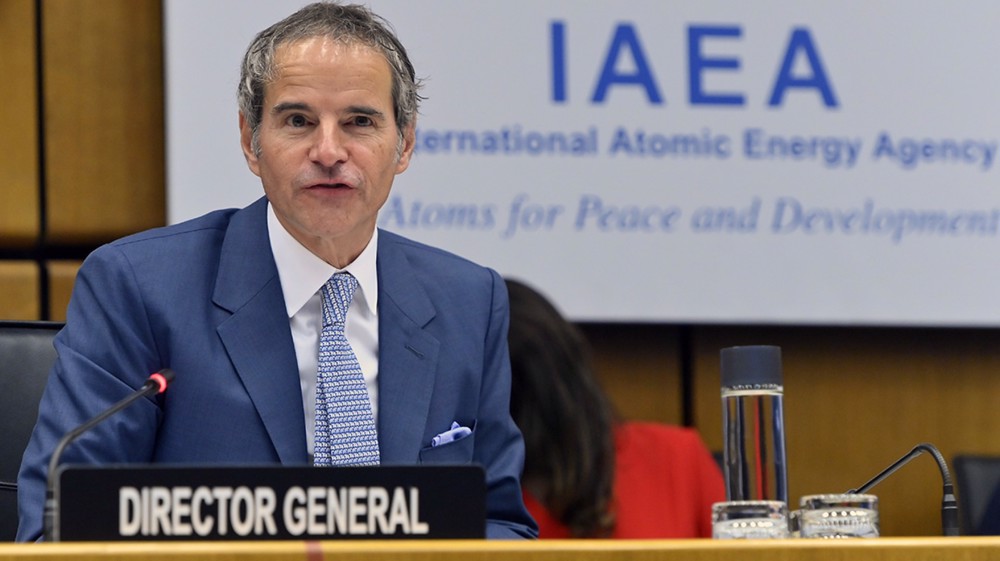
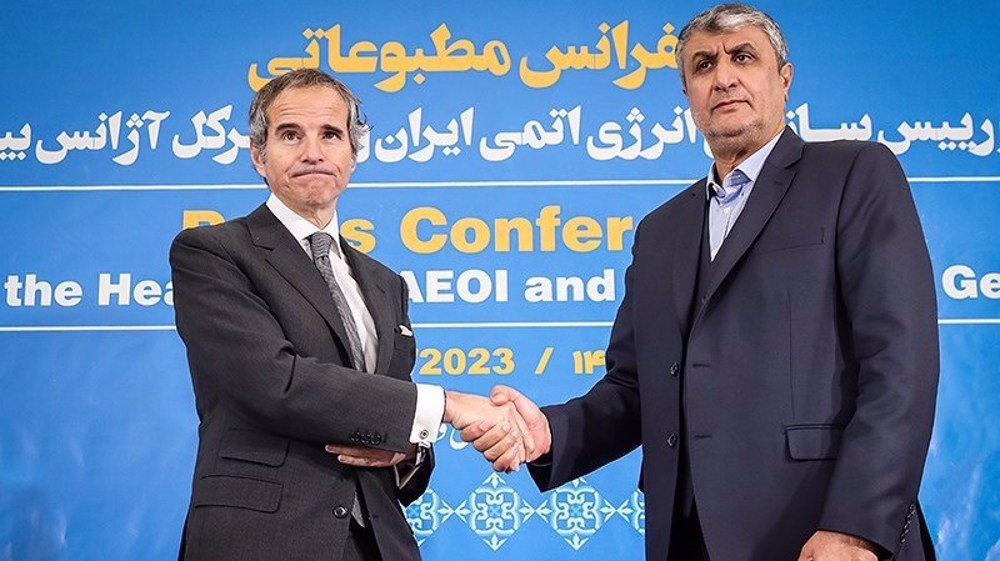
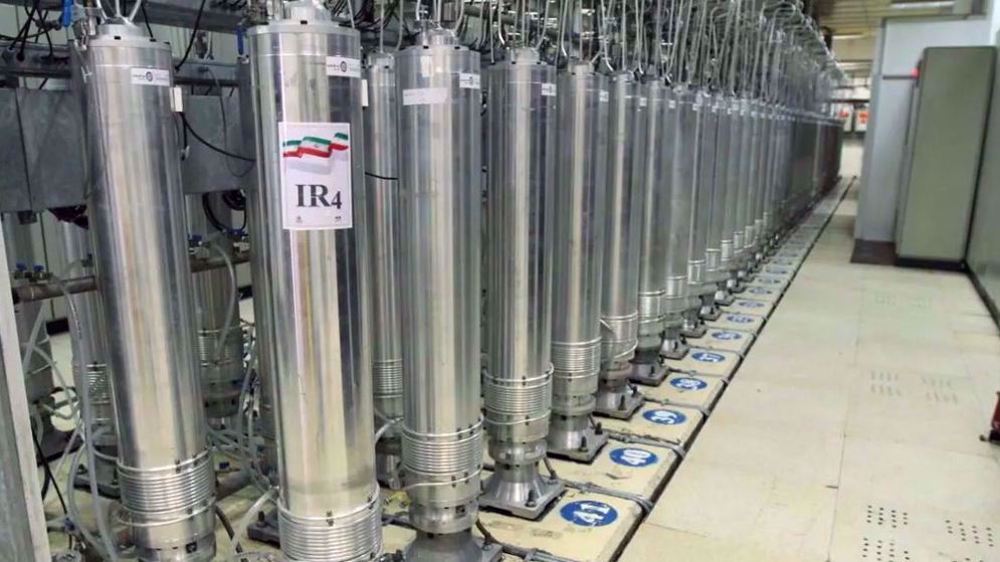
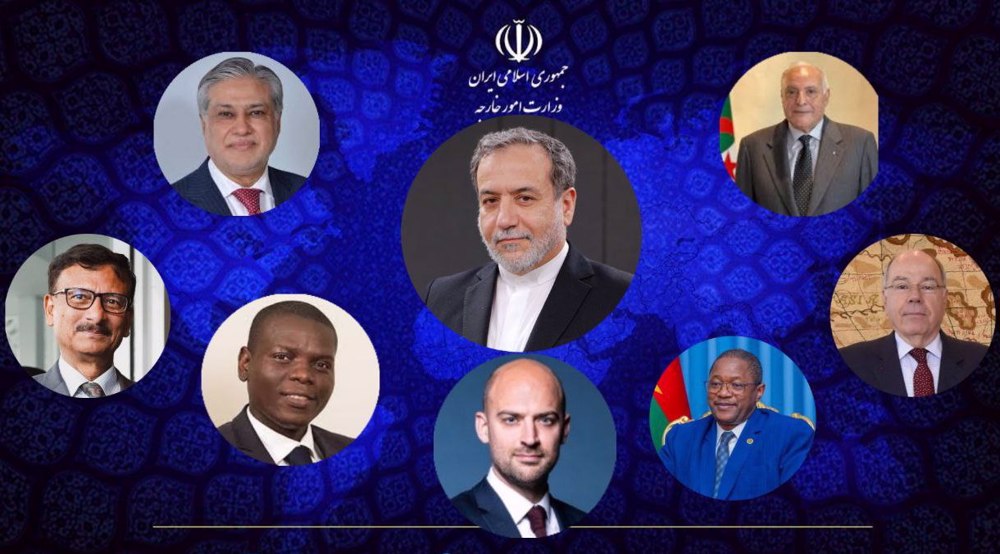
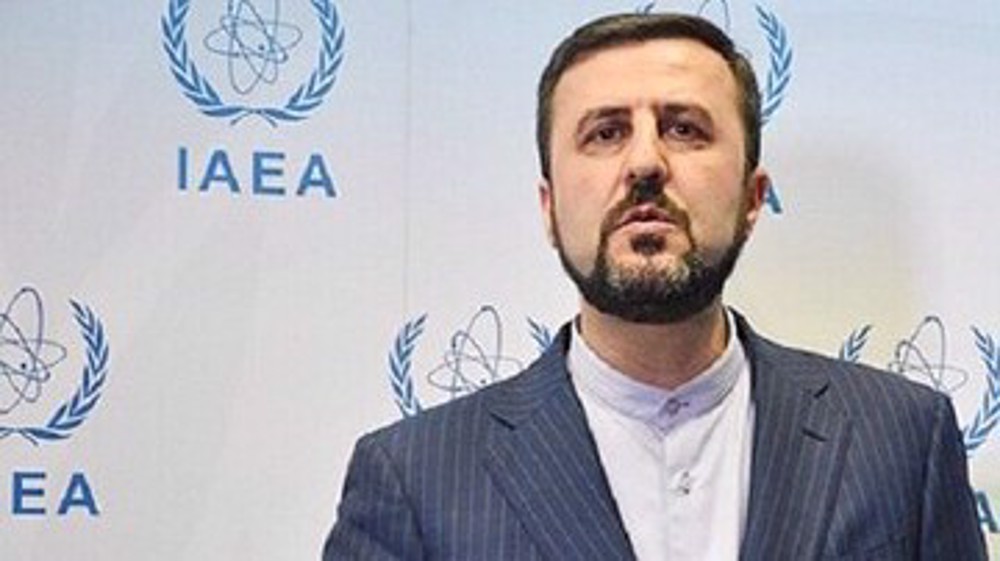
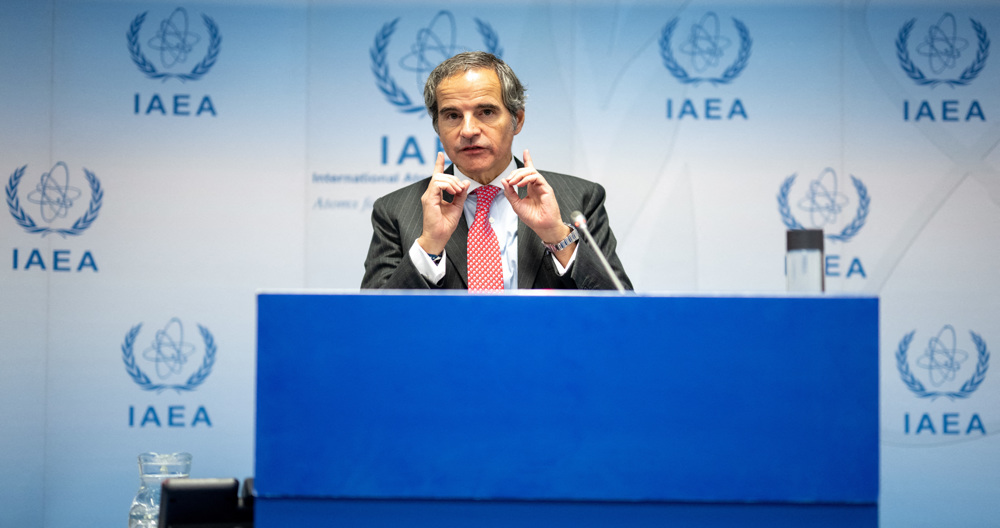




 This makes it easy to access the Press TV website
This makes it easy to access the Press TV website